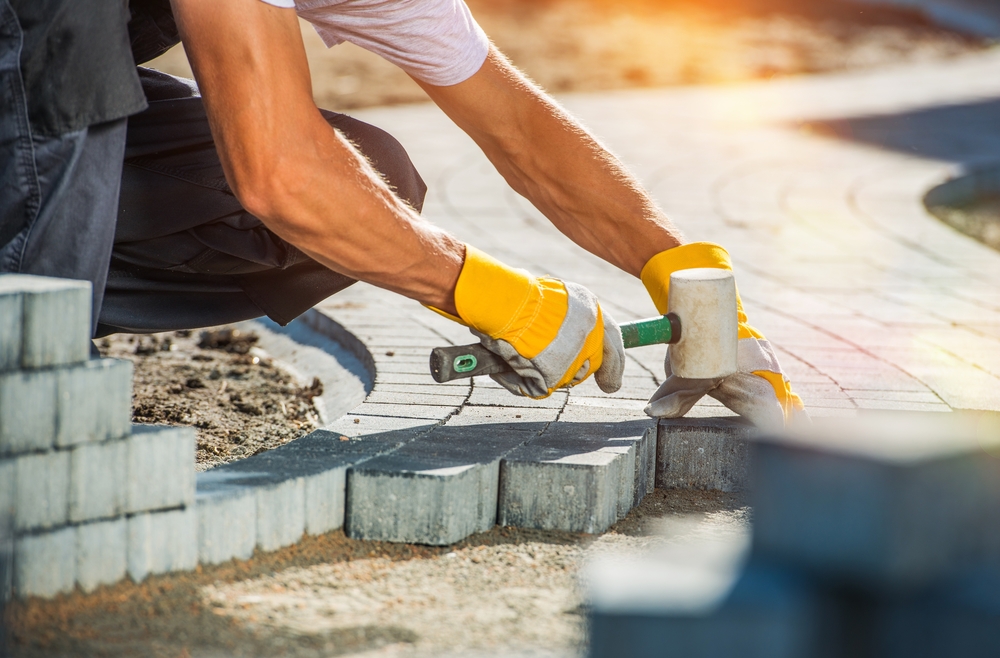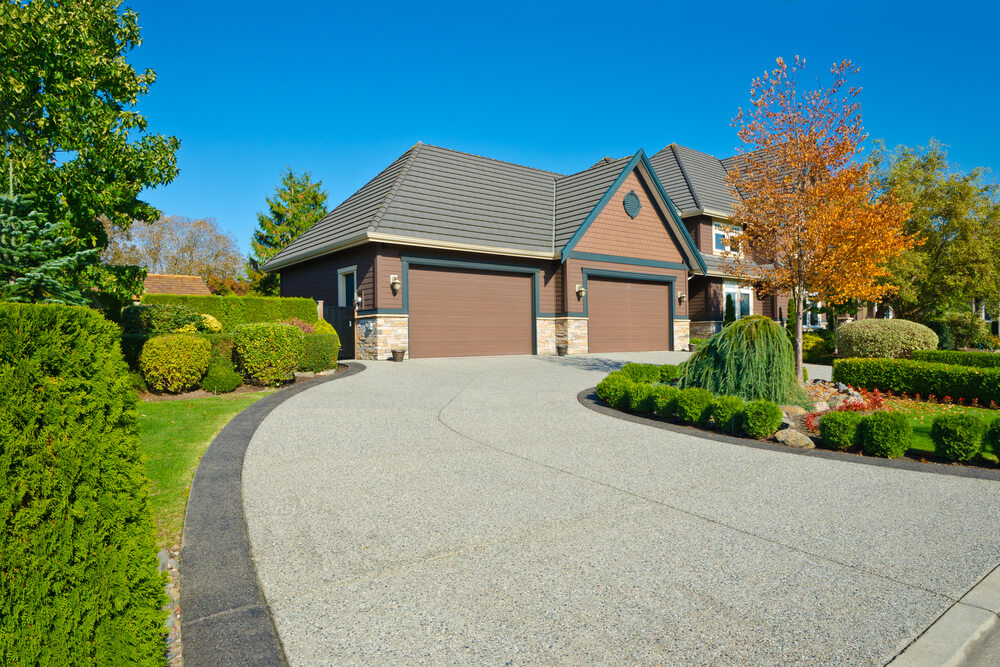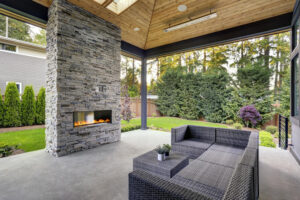Driveway pavers vs concrete slabs are a simple do-it-yourself (DIY) home improvement project that boosts your home’s curb appeal, and value. You may wonder which material is best so, a comparison of driveway pavers vs concrete may help. Remember that your driveway takes up a large space in the front outdoor area, but there are other places where you can use pavers, or concrete to enhance your home.
Does your old driveway need a facelift? Are you creating a completely new driveway or pathway? What is cheaper – poured concrete or pavers? If you have these questions about the differences between a paver driveway, and a concrete patio, take a look at this simple guide for today’s most popular DIY driveway materials. No matter what you choose, a new pathway can refresh the look of your home in any way you like.
Here are just a few of the most popular options for DIY driveway materials to choose from (for pathways of driveway pavers vs concrete patio).
- Asphalt
This material is used to make a range of surfaces for paving. You can use any type of asphalt, or macadam surface to create a solid driveway foundation that is strong enough to last over time in a similar way to concrete.
- Concrete
This ultra-durable material is ideal for upgrading your driveway or giving an old carport a facelift. Other additional spaces are also ideal for using concrete in design. However, it may not be the most cost-effective choice due to the installation process. Over time, many homeowners rely on concrete to strengthen parking spaces, driveways, and other outdoor areas.
- Pavers
You can create all types of patterns, designs, and custom driveway with pavers that require proper installation. If you are a novice DIY home improvement driveway installer, call the offices of Cricket Pavers for support in the process.
Generally, the process requires pre-cut pavers that offer a standard size, and shape for a relatively smooth finished surface. Over time you will find that laying a solid foundation below the pavers is also essential to minimizing uneven spots and limiting maintenance.
- Gravel & Aggregate Materials
Loose materials like gravel and other aggregates are ideal for specific areas of your front driveway.
- Tar & Chip
A less expensive alternative to asphalt, this attractive option is ideal for resurfacing your driveway. In tar, and chip paving, small stones are embedded in a surface layer of tar to create a variable surface. This option is ideal for people who desire a unique texture.
The Differences Between Driveway Pavers vs Concrete
Here is a simple breakdown of the main differences between pavers vs concrete:
Driveway Pavers
This type of pathway paver is visually appealing, and offers so many creative design patterns to customize your driveway – any way you like!
Pros of Paver Driveways:
- Unlimited designs
- Less maintenance
- Easy-to-do repairs
- Visually appealing
- Higher resale value
- Resistance to cracking
Cons of Paver Driveways:
- May deteriorate over time
- More difficult installation
- Harder to clean and maintain
- More expensive option
- May loosen or crack
COST: $1,310 – $1,770 (per 120 square feet)
Driveway Concrete
If you decide to use concrete as a driveway paver, you can keep your front pathway looking fresh. However, there are still many creative options for a unique appearance that is all your own.
Pro’s of Concrete Driveways:
- Affordable
- Durable and strong
- Simple installation process
Con’s of Concrete Driveways:
- Limited options for customization
- Lower overall cost
- Lower maintenance costs
- Discoloration over time
- May split or crack
- Can be affected by extreme temperatures
- Slippery when wet or icy
A DIY home driveway is easier to make when you have the support of professionals. Call the offices of Cricket Pavers to talk to a specialist that can walk you through the planning, materials, and building phases of this simple home improvement job.




